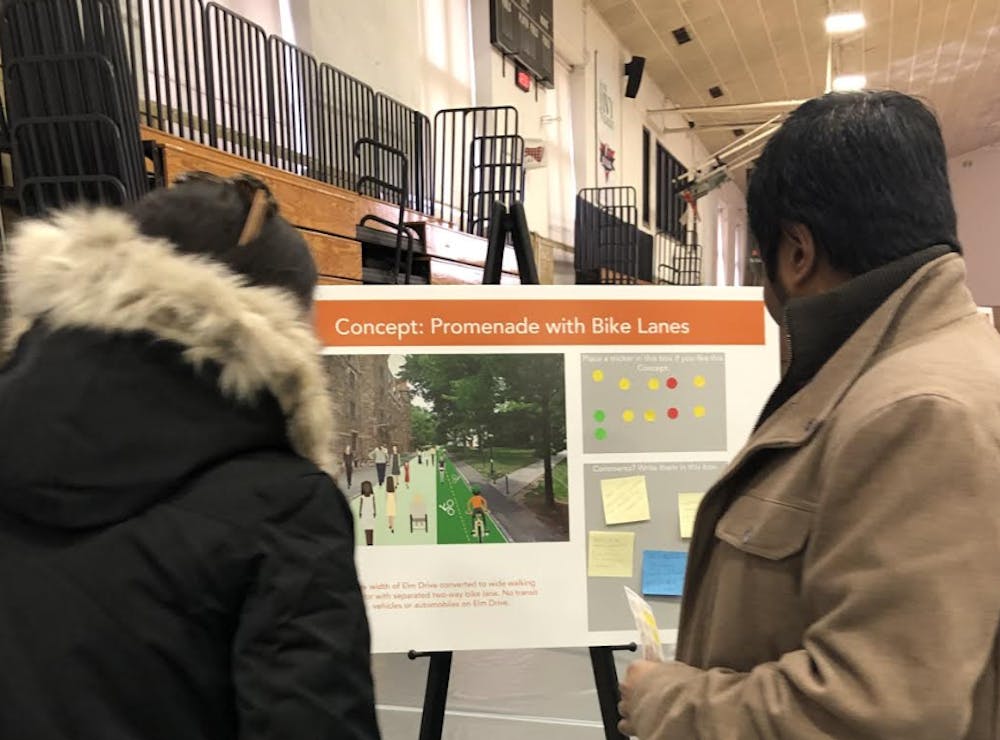TigerTransit is moving in a new direction. An open house in Dillon Gymnasium on Feb. 14 presented early reports on the future of campus mobility for comments by students, faculty, and staff members.
A team comprised of students, faculty, and administrators on the Transportation Advisory Council (TAC) and from the Transportation and Parking Office (TPS) began studying Princeton’s transit network in September 2019 to “explore ideas that can make walking and biking ‘irresistible,’” according to the TPS website.
Kim Jackson, the director of TigerCard and Transportation & Parking Services, recounted the development of Princeton’s transportation network as reactive to “a whole bunch of asks,” which is why, over time, bus routes came to be designed without a cohesive statistical basis.
“It’s time to relook at TigerTransit and all mobility on campus,” Jackson said.
Michelle Poyourow, Senior Associate at Jarrett Walker and Associates, agreed with Jackson that the existing bus routes need to be re-examined.
“These routes have been running with just tweaks over time and do things… because [they] always have,” Poyourow said.
She recommended that, once a generation, any transit system “take a big picture look” and reassess the logic of its design.
At the open house, the consultant teams presented their reassessment of TigerTransit’s shuttle system. Charts, maps, and tables reported the popularity of bus routes, their operating costs per passenger, and theoretical redesigns.

The open house hosted representatives from related groups on campus that are also developing projects which will impact campus mobility. For example, the Office of the University Architect presented plans for the construction of the Lake Campus next to Lake Carnegie. Wayfinding, a consultancy, worked on how people find their way around campus. They studied the legibility of campus signage, the possibility of redesigning Elm Drive to prioritize pedestrian traffic, and the designation of bike lanes.
Other stakeholders in student transportation tabled at Dillon, including the Office of Disability Services, the Office of Sustainability, the student-run Cyclab, and the Enterprise car-share service.
The open house is the culmination of Transportation & Parking Services’ “Campus Mobility Framework.” The framework, according to Jackson, fosters collaboration between concurrent projects, like the construction of Lake Campus, Perelman Residential College, the redesign of TigerTransit, and the regulation of electric scooters.
Jackson is confident that this “synergy” between different projects will allow people to more easily navigate University.

Editor’s Note: This article previously cited a claim that proposed TigerTransit route changes would result in a 15-percent budget cut. However, according to Jackson, no changes have been made regarding routes or funding. The ‘Prince’ regrets the error.








